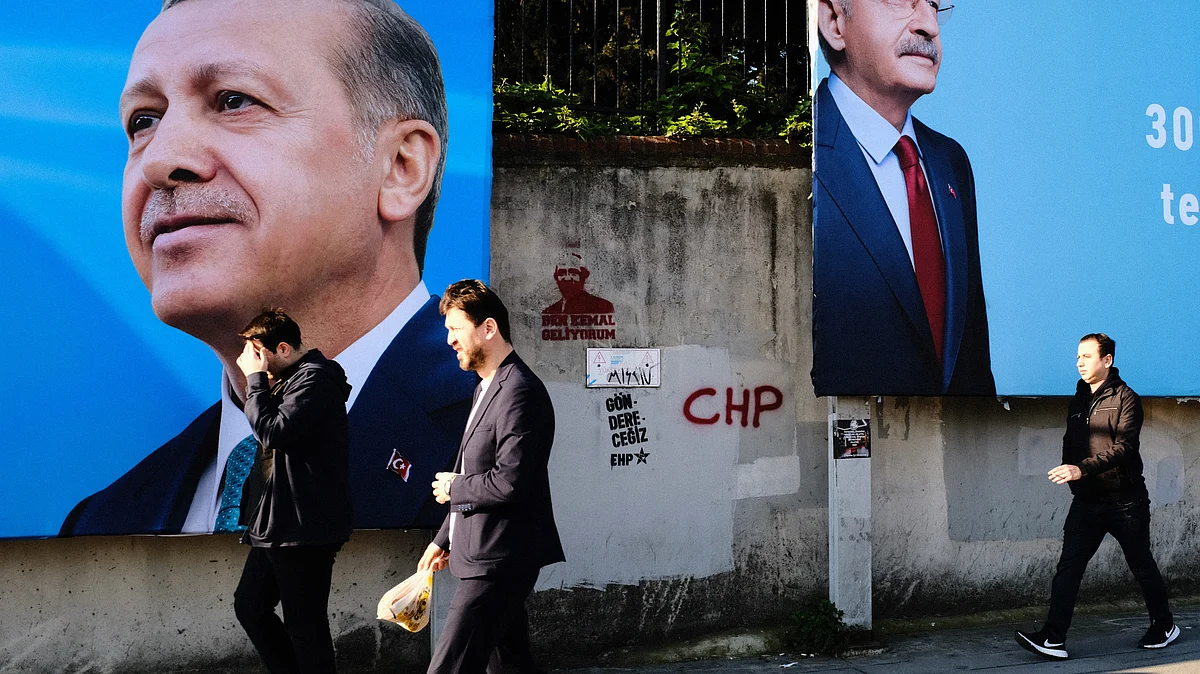It's Advantage Erdogan in Turkey's run-off poll on 28 May
What explains the yearning for a 'strong' Turkish leader? Politically, Turkey has been stormy, with four military coups in 1960, 1972, 1980 and 1997, and a failed putsch in 2016

As Turkey heads towards a tight presidential run-off race on Sunday, May 28, between incumbent president Recep Tayyip Erdogan and opposition leader Kemal Kilicdaroglu, it is anti-refugee, anti-immigrant rhetoric has dominated the campaign till now, raising doubts whether the election result can make any real difference.
Both Erdogan and Kilicdaroglu had failed to poll more than 50 per cent of the total votes, required under the constitution to win in the first round of the election held earlier this month. While the former secured 49.5 per cent of the votes, the latter polled 44.9 per cent. The ultra-nationalist candidate Sinan Ogan finished third and secured an unexpected 5.2 per cent of the votes — and dropped out of the race in the run-off scheduled for 28 May.
The opposition coalition is made up of factions that disagree on secularism and Kurdish inclusion, two issues that have fractured opposition groups for decades. On the other hand, the system of patronage that Erdogan has built over the years puts him in an advantageous position, with several sections of Turkish society loyal to him.
All three candidates have pledged to expel the 3.7 million Syrian and Kurdish refugees. According to the United Nations, the majority of the refugees are Syrians living under “temporary protection status”. A Reuters report claims that around 200,000 Syrians have been given Turkish citizenship since the Syrian war erupted in 2011.
Kilicdaroglu, among them, has taken an even stricter route on ‘refugee removal’. “Erdogan, you did not protect the borders and honour of our country,” he said last week. “As soon as I come to power, I will send all refugees home.” Posters that say “Syrians will go back!” with Kilicdaroglu’s face have been put up across Istanbul. Referring to the Syrian refugees earlier, Kilicdaroglu said: “The flood of irregular people infiltrating our veins everyday will result in Turkey’s demise."
“My children can read those signs," a freelance journalist reported a Syrian parent living in Turkey for seven years as saying. She added the children are bullied at school.
Erdogan’s party, the Islamist Justice and Development Party (Adalet ve Kalkınma Partisi, or AKP), has been facing significant backlash over the progressively worsening economic crisis, increasing restrictions on human rights and the state’s alleged failure to initiate swift relief and rehabilitation following the devastating earthquake that killed more than 50,000 people in February. But while political analysts expected a political backlash in the 14 May election, AKP did remarkably well in five of the six worst-hit provinces in the election. ‘Erdogan is a good man and looked after us well,’ the Washington Post quoted a survivor as saying. The ultra-nationalist Ogan, after coming third in the first round, has also endorsed Erdogan.
Erdogan had famously said that “democracy is a tramway — when you reach your stop, you get off”. On Sunday, it will become clear if Turkish democracy has hit a wall or been shunted down a new route (which may even be more of the same).
Follow us on: Facebook, Twitter, Google News, Instagram
Join our official telegram channel (@nationalherald) and stay updated with the latest headlines
